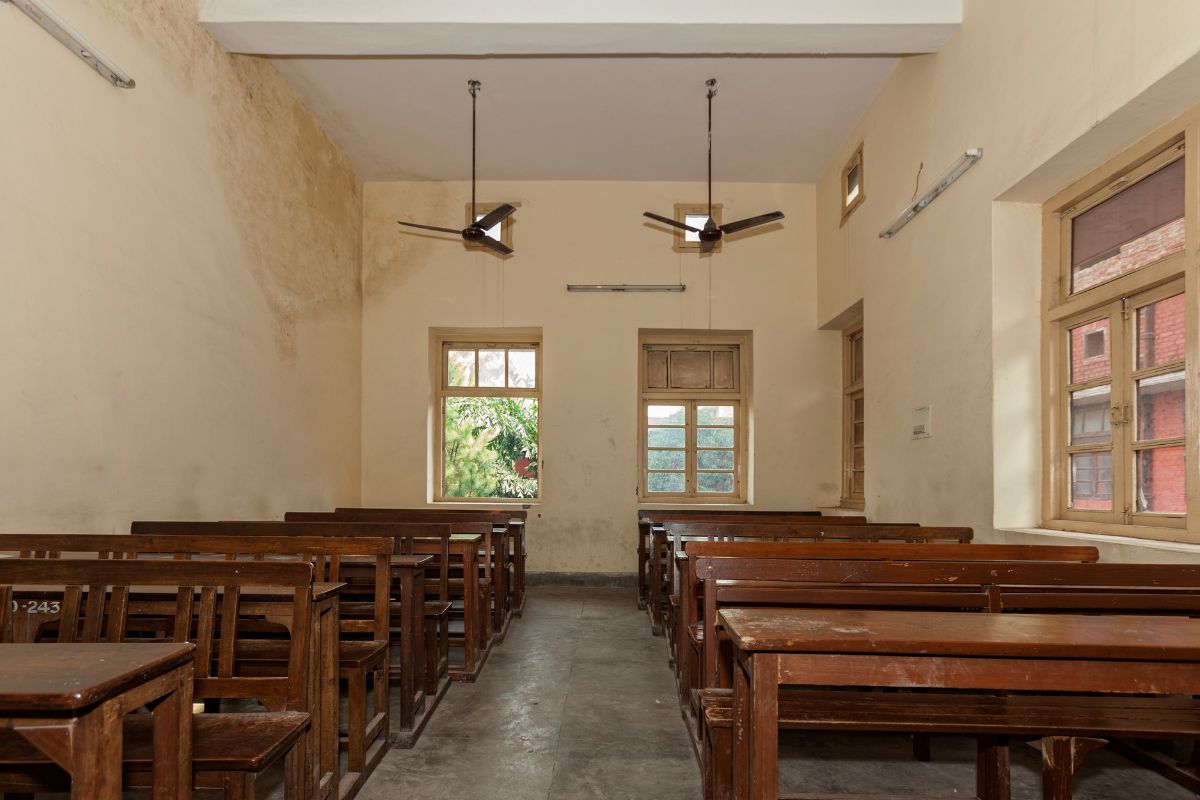State BJP president arrested on way to violence-hit Beldanga
BJP West Bengal president Sukanta Majumdar was preventively arrested by Kotwali police on Wednesday afternoon while attempting to visit violence-hit Beldanga in Murshidabad district.
The order states that the data relating to the children who require monetary assistance for admission can be forwarded to the district education officers.

Representation image (iStock)
West Bengal’s directorate of school education has spared a thought for children who had dropped out because of “financial constraints” during the Covid pandemic. According to the order issued by the state government, district education officers will identify those students who have not been able to attend their institutions of learning. It is an indeterminate group, and the government will be assisted in the huge task by Anganwadi workers, Asha (accredited social health activist) employees, health workers and other government employees. It will, therefore, be a coordinated endeavour in a fundamental facet of public policy. It would be pertinent to quote from the text of the official order ~ “That all children above the age of 14 years who do not fall under the purview of the Right To Education Act but have had to drop out of school due to financial constraints shall be treated as an out of school child”.
The connection between the dropout rate and child labour is all too evident once again. It has now been established that a large number of students have dropped out not the least because the economic distress caused by the pandemic forced them to accept odd-job offers far away from the state in return for a pittance. On Wednesday, para teachers were sent to the affected areas to trace the students who had dropped out. The dropout rate is said to be the highest in Classes 9 and 10, verily the impressionable stage of learning. According to the education department, dropouts has been reported from the decidedly more expensive private schools as well. Guardians who were unable to afford the fees have compelled many students to discontinue studies. A few guardians have got their children enrolled in government or aided schools.
The order states that the data relating to the children who require monetary assistance for admission can be forwarded to the district education officers. And then the specific aspect of the government’s order ~ “The officers can request the schools concerned to waive fees for such children, then provide these children with scholarships, or provide financial aid through donors and NGOs. After exploring all possibilities to meet the financial assistance and if any further funding is required, the nodal officer may approach the government for reimbursement”. The Annual Status of Education Report 2021, released by the NGO Pratham, had recorded a drop of more than 8 percentage points in private school enrolment from 2018 to 2021. The order from Nabanna underlines the imperative that all categories of schools ~ aided, unaided and private ~ will try to “include children who have lost both or either of the parents after April 2020”, specifically when the state was afflicted by the Covid pandemic. The order is no less emphatic on the point that private unaided schools will provide free education to children from disadvantaged and weaker sections. These are welcome measures.
Advertisement
Advertisement